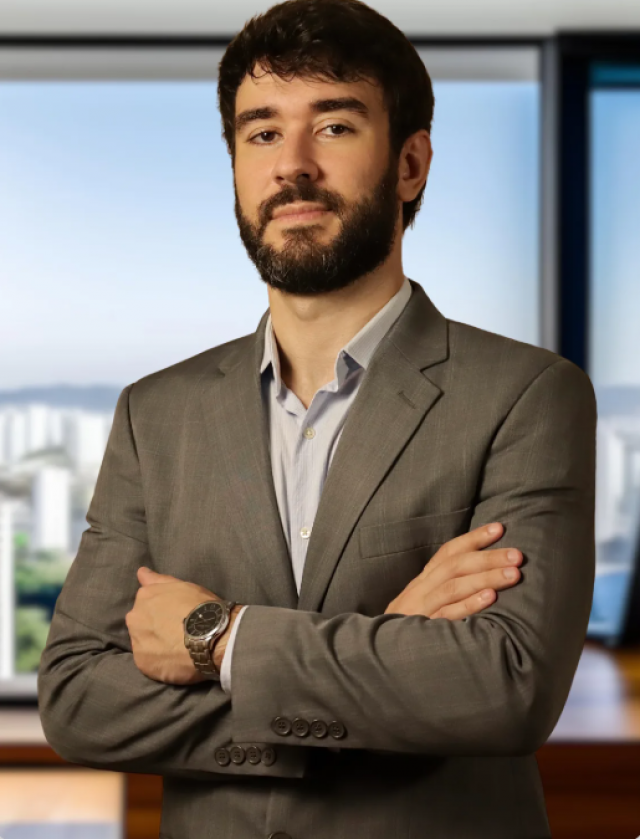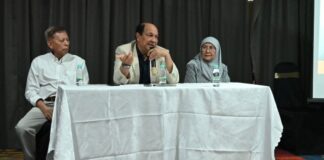With a background in both Economics and Clinical Psychology, Pretel leads a movement redefining the metrics of success for professionals in transition.
(Isstories Editorial):- Estado de Sao Paulo, Brazil Jul 1, 2025 (Issuewire.com) – Felipe Pretel Represents a Generation Shifting from Material Success to Existential Grounding
More on Isstories:
- Decoding the Magic of Smart Cat Litter Boxes: A New Era of Feline Hygiene
- Linda Lee Rodriguez, Recognized by BestAgents.us as a 2026 Top Agent
- Where to Find a Reliable China Borosilicate Glass Candle Jar Supplier?
- Bisheng Packaging: A Global Leading Plastic Packaging Supplier Shaping the Future of Sustainable Solutions
- Irene Moser Recognized by BestAgents.us as a 2026 Top Agent
Felipe Pretel, a São Paulo-based clinical psychologist, is part of a growing movement redefining what success means — shifting from external metrics to existential structure.
Felipe Pretel is a clinical psychologist based in São Paulo, offering in-person sessions locally and online consultations in Portuguese, English, and Spanish. With a dual academic background–Economics from FEA-USP and Psychology from UNIFESP–he embodies a growing professional movement: the transition from rational systems to deep human listening.
His clinical work focuses on young adults in crisis, professionals navigating life transitions, and individuals dealing with depression, anxiety, and personality disorders such as borderline structures. His approach centers on reintegration, clarity, and the restoration of inner structure.
“Perfection is not the goal. But with the right structure, life leans toward it–not in form, but in meaning,” he states.
Felipe combines modern clinical psychology, neuroscience, and pragmatic philosophy, drawing from a lineage of thinkers that includes Nietzsche, Charles S. Peirce, Jean Piaget, Michel Henry, Dostoevsky, Jaak Panksepp, and Otto F. Kernberg. His work offers clarity without rigidity and grounding without moralism. Clients find in him a presence that offers structure in emotionally fragmented contexts.
His clinical orientation is also in consonance with recent neurocognitive models, especially those proposed by Karl Friston, whose theory of active inference and the minimization of free energy sheds light on how meaning, structure, and coherence emerge in the human mind. These frameworks resonate deeply with Felipe’s work and have been the subject of growing interest in his sessions and public videos on Instagram.
Felipe notes that we live in what could be called a “borderline era” — not as a metaphor, but in the structural-psychodynamic sense. A cultural diagnosis marked by emotional fragmentation, identity diffusion, and disorganized belonging.
“It reminds me of the spirit behind Linkin Park — especially Reanimation, which might be why it’s my favorite album. Maybe that’s what I try to do in my work too: help others with the reanimation… of Meaning.”
The shift from economics to psychology was not born of rejection, but of rupture. After a period of inner tension, Felipe had a dream that marked his transition. In it, a voice stated:
“Truth is not what we think or wish it to be — not what we want selfishly… The truth is what helps the majority. And most people are not willing to accept the truth.”
That sentence, experienced as more than symbolic, became the hinge of a new direction: one grounded in listening, complexity, and clinical structure.
Felipe graduated from UNIFESP with one of the highest GPAs in recent years (9.5) and is currently completing postgraduate training in clinical psychology at USP, having earned top marks in all subjects.
In parallel to his clinical practice, Felipe founded Singularis, a structural advisory initiative operating at the intersection of clinical insight, systems strategy, and symbolic architecture. Designed for individuals and organizations in silent transition, Singularis offers high-resolution thinking where standard models collapse, aligning economic reasoning with psychological depth in moments of redefinition.
He emphasizes: “Switching from economics to psychology wasn’t an escape — it was a search for a more precise language to deal with real life.” That search has led him to where he stands today: rooted in the clinic, dedicated to listening and to rebuilding meaning.
For reflections, insights, and clinical fragments: @ifpretel
Felipe Pretel
[email protected]
11934622310
São Paulo, SP. Brazil.
http://www.instagram.com/ifpretel
This article was originally published by IssueWire. Read the original article here.




















